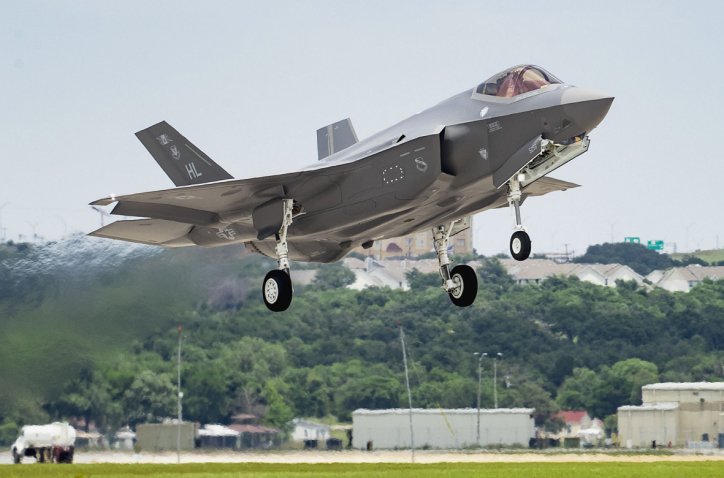
The Pentagon has awarded Lockheed Martin a USD1.9 billion contract to support operations and sustainment (O&S) of the global F-35 Lightning II Joint Strike Fighter (JSF) fleet, according to a company statement.
The 2020 Annualized Sustainment Contract will cover industry sustainment activities through 31 December 2020. This deal funds critical sustainment activities for aircraft currently in the fleet and builds enterprise capacity to support the future fleet of more than 3,000 F-35 aircraft.

This new F-35 sustainment contract includes industry sustainment experts supporting pilot and maintainer training, which concerns a Pentagon watchdog. (Lockheed Martin)
This contract includes industry sustainment experts supporting base and depot maintenance, pilot and maintainer training, and sustaining engineering around the world. It also covers fleet-wide data analytics and supply chain management for part repair and replenishment to enhance overall supply availability for the fleet.
An expert believes that F-35 sustainment issues are emblematic for how the Pentagon is dealing with rising sustainment costs that are crowding out money available for procurement and research and development (R&D). Bryan Clark, senior fellow at the Center for Strategic and Budgetary Assessments (CSBA) think tank in Washington, DC, told Jane’s on 6 January that not only does the F-35 have a higher cost per flying hour than its predecessor aircraft, but that it is also has a spare parts shortage.
Clark said that previous generations of aircraft were not significantly more expensive than their predecessors. In some cases, such as in the Lockheed Martin F-16 Fighting Falcon and the Boeing F/A-18 Hornet, the new aircraft was about the same, or a little less expensive, than the previous aircraft due to improved reliability and solid state electronics.
Looking to read the full article?
Gain unlimited access to Janes news and more...




